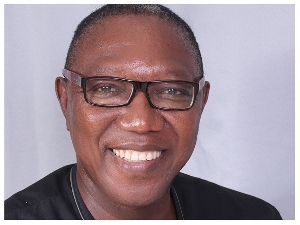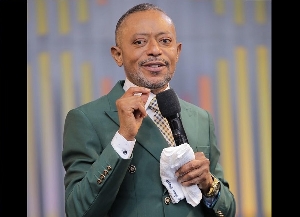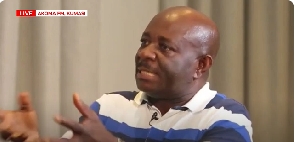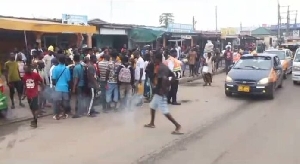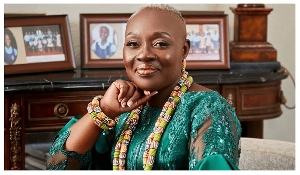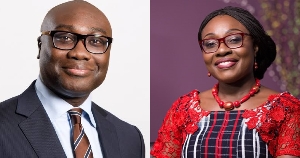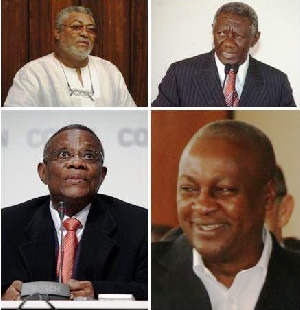 Presidents of the Fourth Republic
Presidents of the Fourth Republic
When Ghana returned to constitutional rule and adopted multi-party democracy as a preferred system of governance in 1992, Ghanaians of adult suffrage on December 7, 1992, elected their incumbent Head of State, Flight Lieutenant Jerry John Rawlings, to serve as the first President of the Fourth Republic.
The retired Airforce pilot, who, for 10 years, presided over the Provisional National Defence Council, (PNDC) was subsequently sworn into office on January 7, 1993. After serving two terms in office, President Rawlings nobly handed over to John Agyekum Kufuor on January 7, 2001.
Brief Profile and legacy of President Jerry John Rawlings
Flt. Lt. J.J Rawlings was born on 22nd June 1947 to James Ramsey John, a chemist from the United Kingdom, Scotland, and Madam Victoria Agbotui who hails from Dzelukope, near Keta, in the Volta Region. Rawlings attended Achimota School for his secondary education.
He is married to Nana Konadu Agyeman Rawlings and they have three daughters: Ezanetor, Yaa Asantewaa, Amina; and a son, Kimathi.
Rawlings initially came to power in 1979 through a coup and handed over power to the Limann’s administration on September 24, 1979, but he took control of the country again on December 31, 1981, as the Chairman of the PNDC until 1992.
On the legacy of Former President Rawlings, some Ghanaians told the Ghana News Agency that they remember him for his charisma, championing the principles of discipline, probity and accountability.
“For the discipline in his nature that brought orderliness in the country, I would forever appreciate Flight Lieutenant Jerry John Rawlings,” Ms Esther Amoafo, a student of the Ghana Institute of Journalism, stated.
“Anytime I pass through the Kaneshie Market and I see filth, I remember Former President Rawlings because, during his time, the filthiness in the country was much less.”
Mr Edmund Y. Drah, a resident of Madina said he remembers Mr Rawlings for rural electrification projects and the Thomas Sankara Overpass.
Mr Kofi Arthur, a resident of Cantonments, said he also remembers Mr Rawlings for leading the country through the difficult years of Economic Recovery, which restored confidence in the national economy.
He said his passion for addressing the cause of ordinary people and fighting injustice and corruption was legendary.
Madam Sandra Adu, a teacher, said she was appreciative of the decentralisation programme that aimed at fostering total national development and expanding the decision-making process.
Ms Adu said Mr Rawlings must also be credited for the liberalisation of the airwaves, which has given a voice to the voiceless in society.
Brief Profile and legacy of President John Agyekum Kufuor
Mr John Kofi Agyekum Kufuor was born on December 8, 1938, in Kumasi, and educated at the Osei Tutu Boys’ College (1951–53), Prempeh College (1954–58), Lincoln's Inn, London (1959–1961) and Exeter College, University of Oxford (1961–64).
Kufuor served as the Member of Parliament for Atwima Nwabiagya in the Second (1969-72) and Third (1979-81) Republics, respectively.
He was a Minister under Dr. Kofi Abrefa Busia's Progress Party government during Ghana's Second Republic and was a Popular Front Party opposition frontbencher during the Third Republic.
His victory over John Atta-Mills after the end of Mr Rawlings' second term marked the first peaceful democratic transition of power in Ghana since independence in 1957.
He was sworn into office on 7th January 2001.
Ms Adwoa Sey, a public servant said Mr Kufuor would be remembered for the bold decision in embracing the Highly Indebted Poor Country Initiative to restore the national economy.
Under the Five Priority Areas Programme, including the pursuit of Good Governance, Modernisation of Agriculture for Rural Development, Private Sector Development, Enhanced Social Services and vigorous Infrastructure Development, Ms Sey said Mr Kufuor was able to significantly build on the achievements of his predecessors and introduce some breakthrough programmes.
“It was during his tenure that real meaning was given to the private sector as the engine of growth,” she said.
Mr Otu Abbosey, a surveyor, said he would remember the creation of the Private Sector Initiatives, which was to harness the creativity and the entrepreneurial spirit of the Ghanaian for wealth creation.
Mr John Anni, a carpenter at Madina, says Mr Kufuor would be remembered for extending credit to small-scale businesses and creating more jobs.
Ms Kulah Cecilia Kulah, a resident of Kwabenya, said Mr Kufuor should not be forgotten for his all-inclusive government, which made Dr Paa Kwesi Nduom a Minister, though he was a member of the Convention People’s Party.
Other people mentioned the introduction of the Metro Mass Transport, National Health Insurance Scheme, the development of model schools, the School Feeding Programme and the Livelihood Empowerment Against Poverty Programme as worthy legacies of the ‘Gentle Giant’.
Brief Profile and legacy of President John Evans Atta-Mills
Professor John Evans Atta-Mills was born on 21st July 1944, at Tarkwa, in the Western Region but hailed from Ekumfi Otuam in the Mfantsiman East Constituency of the Central Region.
He obtained his General Certificate of Education (GCE) Advanced Level in 1963 at the Achimota Secondary School.
He attended the University of Ghana, Legon, where he received a Bachelor's Degree and Professional Certificate in Law, in 1967.
Prof. Atta-Mills earned a PhD in Law from the prestigious School of Oriental and African Studies (SOAS) in London.
He was selected as a Fulbright Scholar at the equally prestigious Stanford Law School in the United States of America. At age 27, he was awarded his PhD after successfully defending his doctoral thesis in the area of taxation and economic development.
His contribution to intellectual development is remarkable having served on numerous boards and committees.
Prof. Atta-Mills was sworn into office on 7th January 2009, however, he died suddenly on July 24, 2012, barely six months before the end of his four-year term.
He was touted as a ‘Man of Peace’ because peace resonated in most of his public speeches; hence, Ghanaians nicknamed him, ‘Asomdwee Hen’ or Prince of Peace.
His Godly character and humility was evident as he defiantly declared to the Western countries that Ghana would not legalise homosexuality. With his vast knowledge in taxation and economy, President Mills introduced policies, which resulted in the reduction of inflation to a single digit.
It also ensured a stable currency, increased quality education, increased the economic growth rate to 14 percent in 2011 and improved healthcare.
Ghanaians would forever remember him for his love for peace and humility.
After Professor Atta-Mills demise, Vice-President John Dramani Mahama was immediately sworn-in as President on the evening of July 24, 2012, to avoid any power vacuum.
President John Dramani Mahama won the December 2012 Presidential Election after finishing the term of President Atta-Mills.
The Powers of the President
Chapter 8 of the 1992 Constitution of the Republic of Ghana states the duties and the powers of the President.
The President is required to: uphold the Constitution, exercise executive authority and preserve the safety of the people and homeland of Ghana.
The President has other powers, including the following: As the leader of the executive branch of government, the Commander-in-Chief of the Ghana Armed Forces and also to declare war when the need arises. In times of serious internal or external turmoil or threat, or economic or financial crises, the President may assume emergency powers.
The President can call for a referendum to be held on very important national issues, declare state of emergency for the maintenance of public safety, peace and harmony, issue executive orders and grant amnesty with the consent of Parliament as well as appoint senior public officials and honour individuals and personalities for their distinguished services and leadership through issuance of medals.
Likewise, the President could be removed from office if he/she is found, in accordance with the provisions of the Constitution, had taken decisions that are – prejudicial or inimical to the economy or the security of the country. In this case, the President shall cease to hold office as the President of the Republic of Ghana on the date the Parliament of Ghana decides that he/she be removed from office.
Every president has a four-year mandate and renewable after the first term in office. Since Ghana returned to constitutional rule in 1992, it had successfully elected four heads of states through the ballots which granted power to Ghanaians 18 years and above to choose the President.
- What exactly is your grand plan? - Franklin Cudjoe asks Akufo-Addo over sacking of SSNIT, GRA bosses
- Ghana is doing well, don't negate what we have achieved because NPP is in office – Nana Ofori-Atta
- Meet the 8 'prominent' lawyers Akufo-Addo has penciled to be justices of the Court of Appeal
- 58% of voters in the Ashanti Region say Ghana is heading in the wrong direction – Poll
- Under Mahama a whole gallon of petrol was GH¢14, today just a litre is over GH¢14 - Edudzi Tamakloe
- Read all related articles

